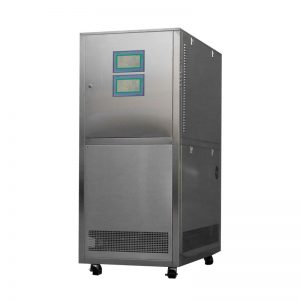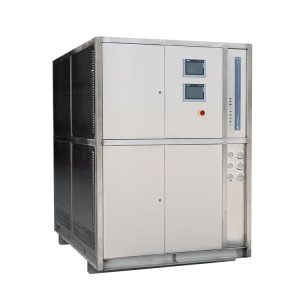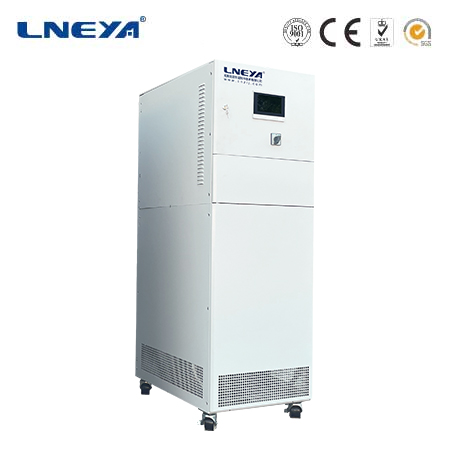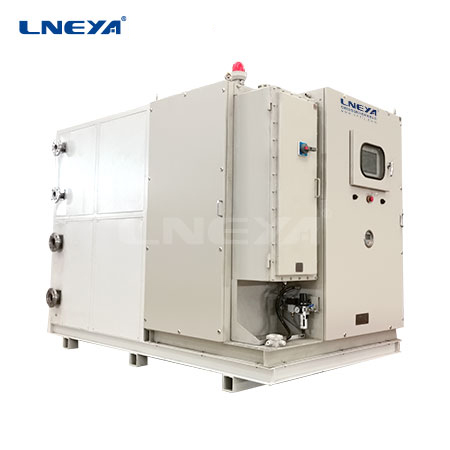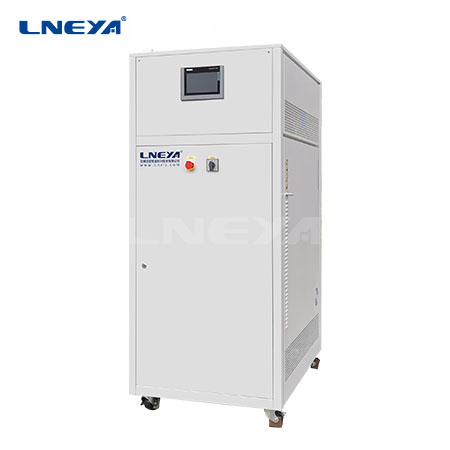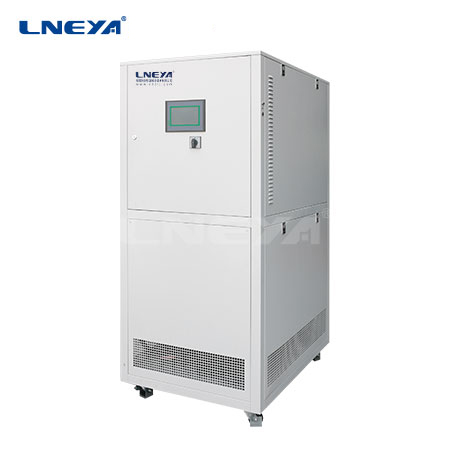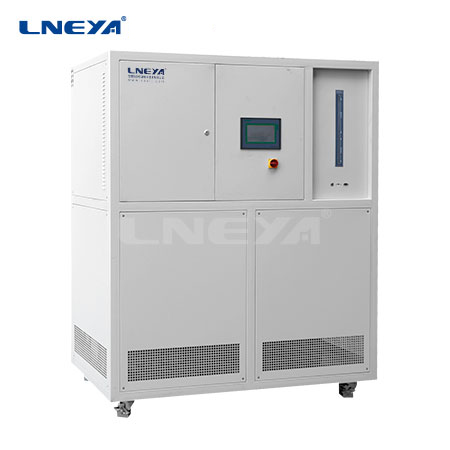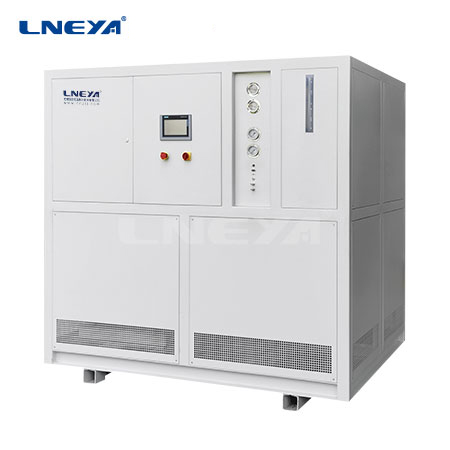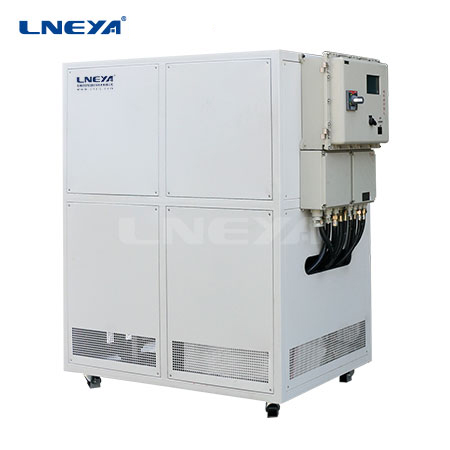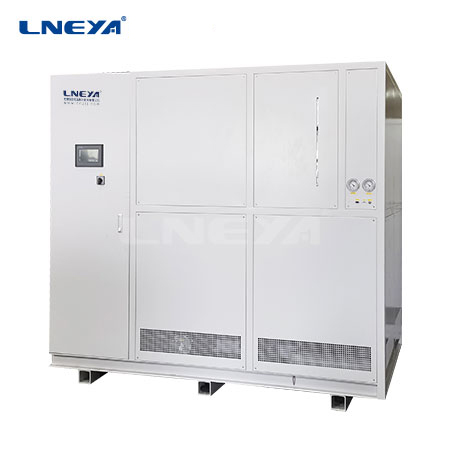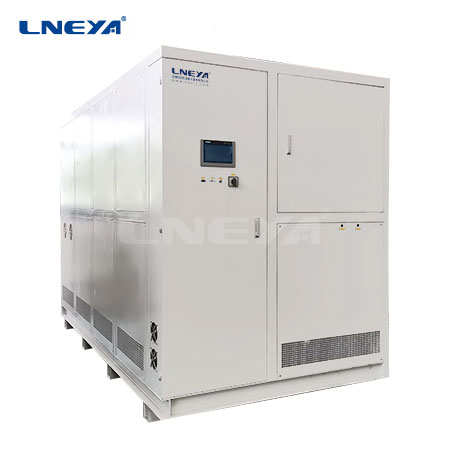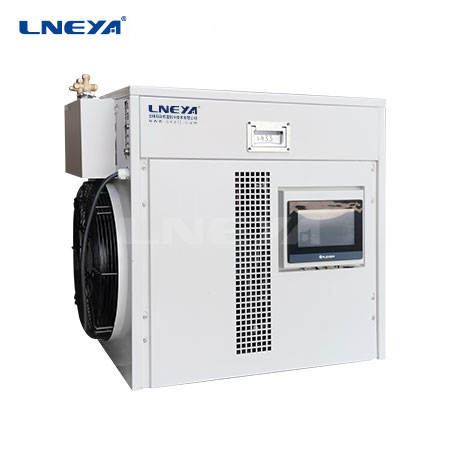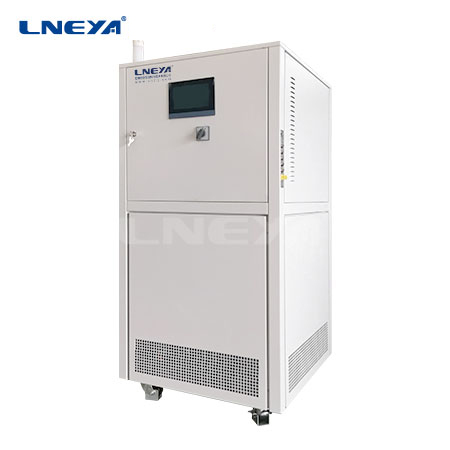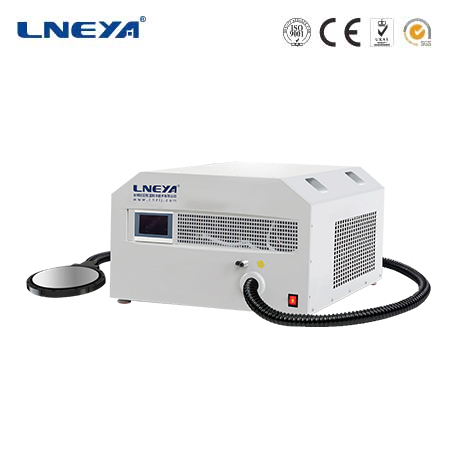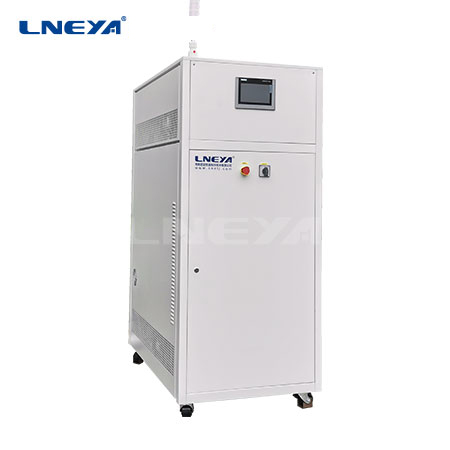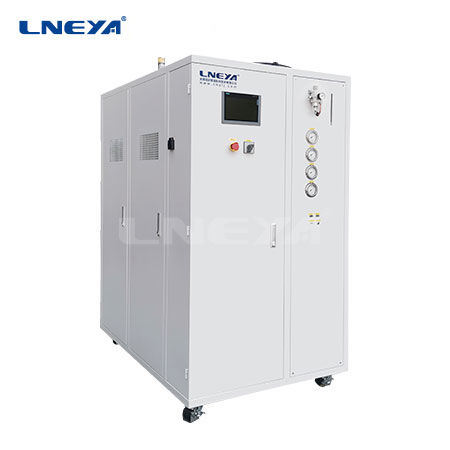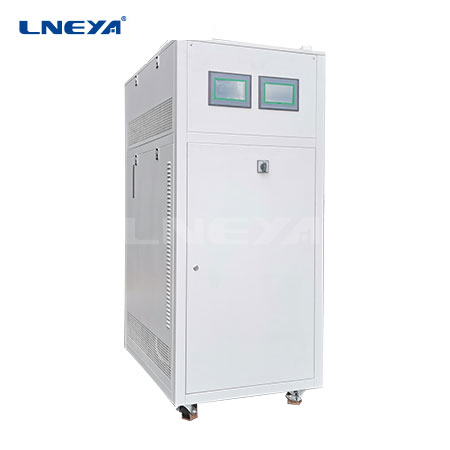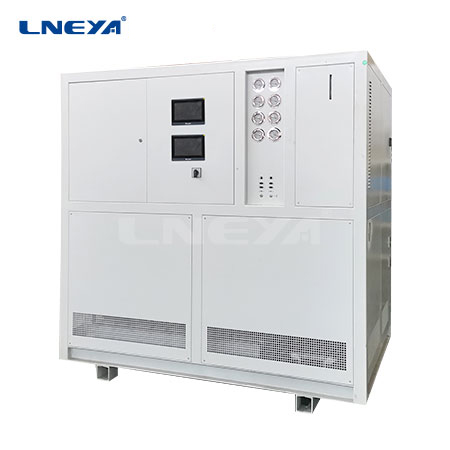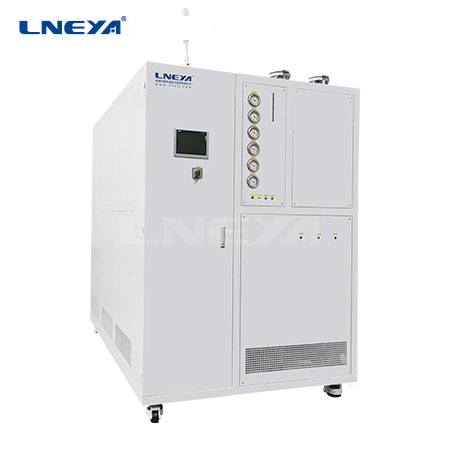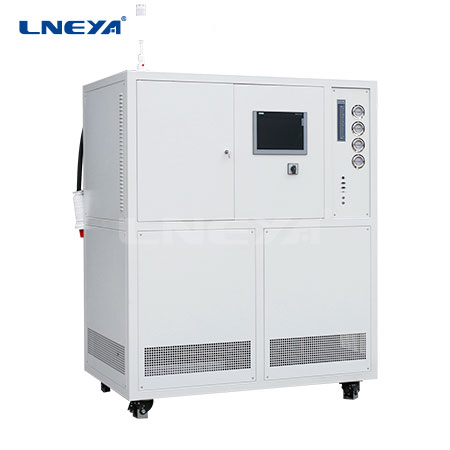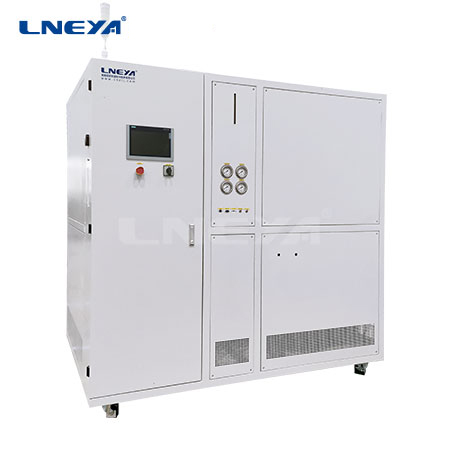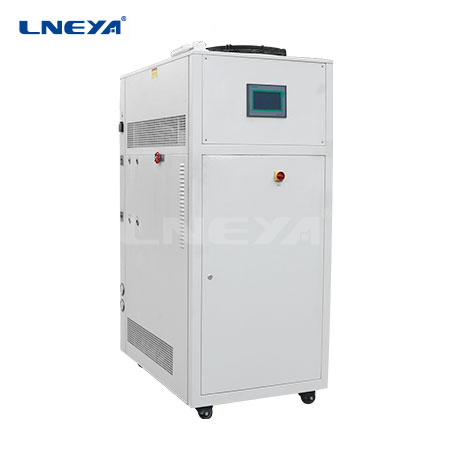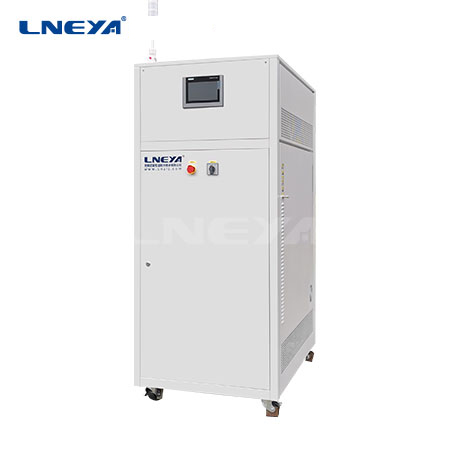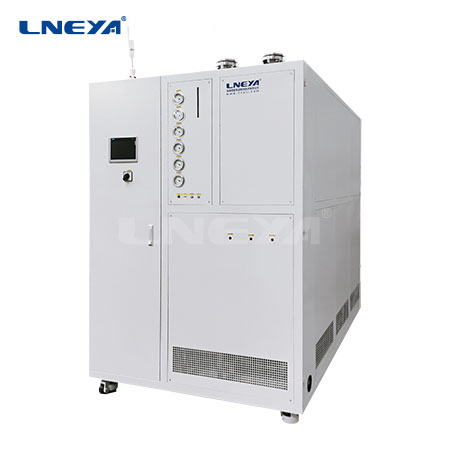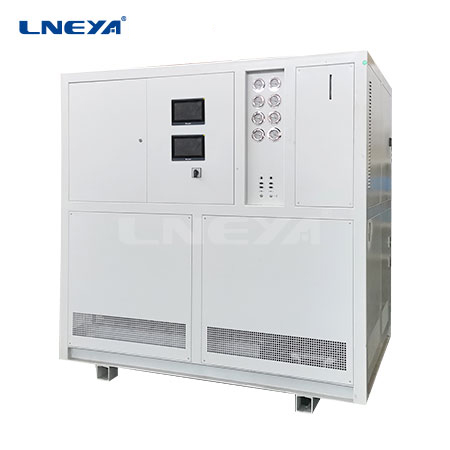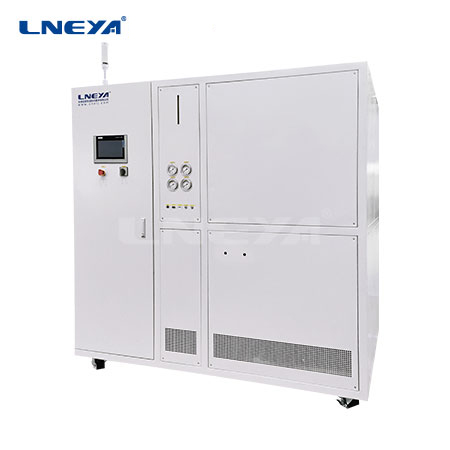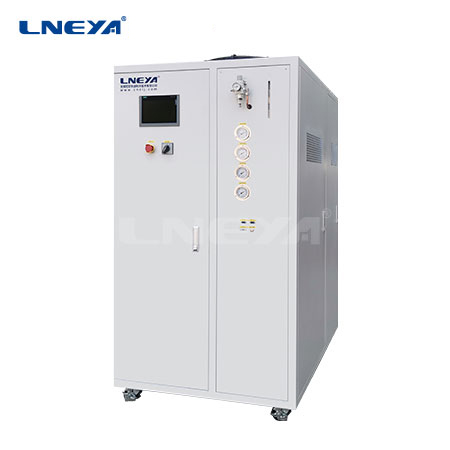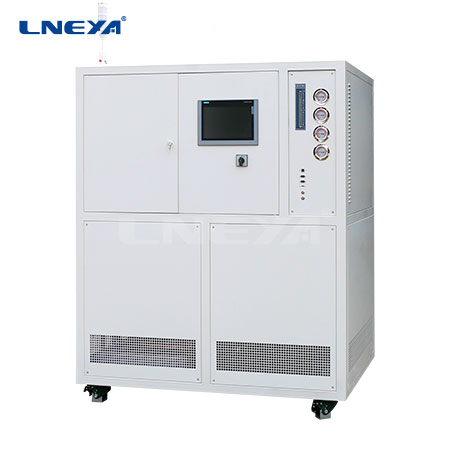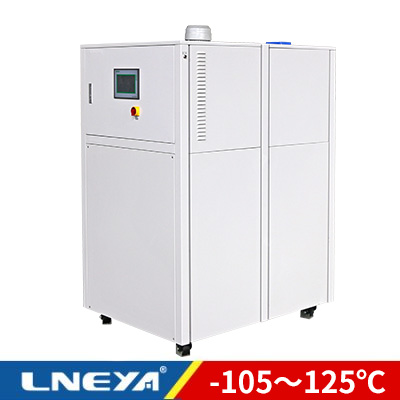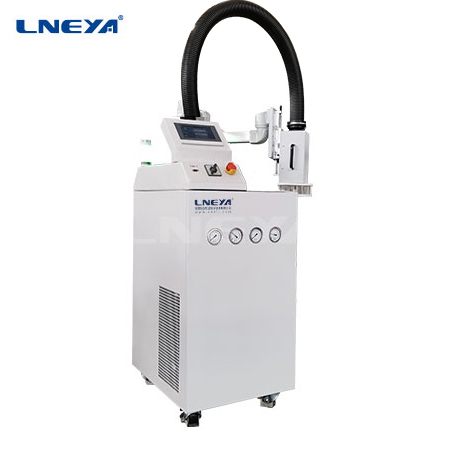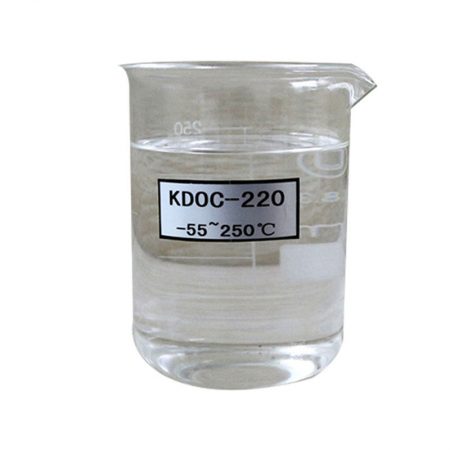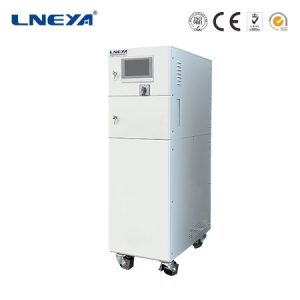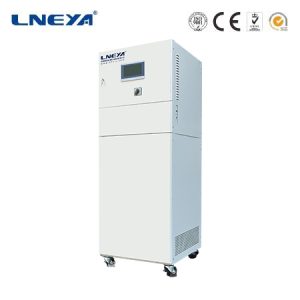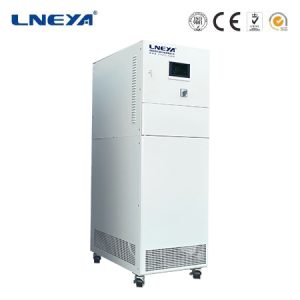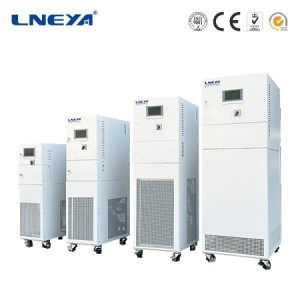Vapour Compression Chiller
Kontaktieren Sie uns noch heute für die perfekte Lösung zur Temperaturkontrolle
Vapor compression refrigeration or vapor compression refrigeration systems in which the refrigerant undergoes a phase change is one of many refrigeration cycles and is the most widely used method for air conditioning in buildings and automobiles. It is also used in household and commercial refrigerators, large warehouses for refrigerated or frozen food and meat, refrigerated trucks and railroad cars, and many other commercial and industrial services. Refineries, petrochemical and chemical processing plants, and natural gas processing plants are among the many types of plants that frequently use large vapor compression refrigeration systems. Multi-stage refrigeration systems can also be implemented using two compressors.
A vapor compression chiller uses circulating liquid refrigerant as a medium to absorb and remove heat from the space to be cooled, and then discharges the heat elsewhere. All such systems have four components: a compressor, a condenser, a metering device or thermal expansion valve (also called a throttle valve), and an evaporator. The circulating refrigerant enters the compressor in a thermodynamic state called saturated vapor and is compressed to a higher pressure, resulting in a higher temperature. The hot compressed steam is then in a thermodynamic state called superheated steam, and it is at a temperature and pressure where it can be condensed with cooling water or cooling air flowing through the coils or pipes.
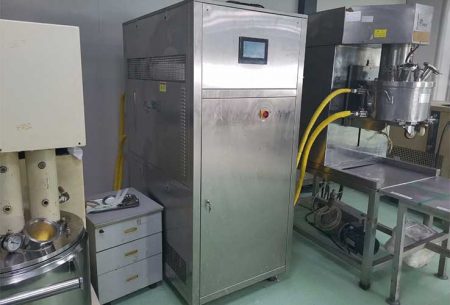
The superheated steam then passes through the condenser. This is where heat is transferred from the circulating refrigerant to the external medium, causing the gaseous refrigerant to cool and condense into a liquid. The rejected heat is removed by water or air, depending on the type of condenser.
The condensed liquid refrigerant, which is in a thermodynamic state called a saturated liquid, next passes through an expansion valve where there is a sudden reduction in pressure. This pressure reduction causes adiabatic flash evaporation of a portion of the liquid refrigerant. The automatic refrigeration effect of adiabatic flash reduces the temperature of the liquid and vapor refrigerant mixture to a point below the temperature of the enclosed space to be cooled.
The cold refrigerant liquid and vapor mixture then passes through coils or tubes in the evaporator. Air in an enclosed space circulates in coils or ducts due to thermal convection or fans. Because the air is warmer than the cold liquid refrigerant, the transferred heat cools the air and causes the liquid to evaporate, causing it to return to its gaseous state while absorbing heat. When the liquid remains in the refrigerant stream, its temperature does not rise above the boiling point of the refrigerant, which is determined by the pressure in the evaporator. Most systems are designed to evaporate all refrigerant to ensure that no liquid returns to the compressor.
To complete the refrigeration cycle, the refrigerant vapor from the evaporator becomes saturated steam again and is sent back to the compressor. Over time, the evaporator may collect ice or water from ambient humidity. The ice melts through defrost and water from the melted ice or evaporator then drips into the drip pan and the water is carried away by gravity or a condensate pump.
E-Mail: info@lneya.com WeChat ID: +8615251628237 WhatsApp: +86 17851209193

Rückkühler / Umwälzkühler
Die Kältemaschine kann in verschiedenen Industrien und Labors eingesetzt werden und unterstützt kundenspezifische Designs.
| Temperaturbereich | Serie -25°C ~ +30°C | -45°C ~ +30°C Reihe | Serie -60°C ~ -20°C | Serie -80°C ~ -20°C | Serie -120°C ~ -70°C | ||||
| Kühlleistung | 0,8 ~ 30kW | 0,75 ~ 12kW | 0,4 ~ 6kW | 0,2 ~ 6kW | 0,3 ~ 5kW | ||||
| Hinweis: Jeder Temperaturbereich von -150℃ ~ +350℃ und jede Kühlleistung kann angepasst werden | |||||||||
 Kaltwassersätze / Kleinkaltwassersätze
Kaltwassersätze / Kleinkaltwassersätze
Die Kältemaschine kann in verschiedenen Industrien und Labors eingesetzt werden und unterstützt kundenspezifische Designs.
| Temperaturbereich | -18°C ~ +30°C | +5°C ~ +35°C Reihe | |||||||
| Kühlleistung | 0,35 ~ 0,9kW | 1,8 ~ 50kW | |||||||
| Hinweis: Jeder Temperaturbereich von -150℃ ~ +350℃ und jede Kühlleistung kann angepasst werden | |||||||||

Niedertemperatur-Kühlgeräte
Wir haben uns auf die Herstellung von Niedertemperaturkältemaschinen mit einem Temperaturregelbereich von bis zu -150°C spezialisiert, die den Kühlbedarf verschiedener Branchen decken.
| Temperaturbereich | Serie -25°C ~ -5°C | Serie -45°C ~ -10°C | Serie -60°C ~ -10°C | Serie -80°C ~ -30°C | Serie -110°C ~ -50°C | Serie -150°C ~ -110°C | |||
| Kühlleistung | 12 ~ 360kW | 6 ~ 180kW | 6 ~ 180kW | 4 ~ 180kW | 2 ~ 120kW | 2,5 ~ 11kW | |||
| Hinweis: Jeder Temperaturbereich von -150℃ ~ +350℃ und jede Kühlleistung kann angepasst werden | |||||||||
Kühlen und Heizen Kaltwassersätze

Kühlen und Heizen Kaltwassersätze
Temperaturregelbereich: -120°C bis +350°C
Anwendung: Verschiedene Reaktoren (Mikrokanäle, Glas, ummantelte Reaktoren usw.), Destillations- oder Extraktionssysteme, Labor, Universität, Forschungsinstitut, Luft- und Raumfahrt, Automobilindustrie, Halbleiter- und Elektrotests, Chemie, Pharmazie, Petrochemie, Biochemie, Medizin, Krankenhaus, F&E-Werkstatt, Luft- und Raumfahrt, Biologie und andere Industrien.
| Temperaturbereich | Serie -10 ~ +150°C | Serie -25 ~ +200°C | Serie -25 ~ +300°C | Serie -45 ~ +250°C | Serie -45 ~ +300°C | Serie -60 ~ +250°C | Serie -60 ~ +300°C | Serie -70 ~ +250°C | Serie -80 ~ +250°C | Serie -90 ~ +250°C | Serie -100 ~ +100°C | ||
| Kühlleistung | 1,5 ~ 15kW | 1 ~ 200kW | 1 ~ 200kW | 0,45 ~ 200kW | 0,9 ~ 25kW | 0,25 ~ 60kW | 0,75 ~ 25kW | 0,4 ~ 15kW | 0,3 ~ 80kW | 0,2 ~ 80kW | 0,45 ~ 80kW | ||
| Hinweis: Jeder Temperaturbereich von -150℃ ~ +350℃ und jede Kühlleistung kann angepasst werden | |||||||||||||

Kühlgeräte mit Rücklaufheizung
Temperaturregelbereich: -45°C bis +250°C
Anwendung: Verschiedene Reaktoren (Mikrokanäle, Glas, ummantelte Reaktoren usw.), Destillations- oder Extraktionssysteme, Labor, Universität, Forschungsinstitut, Luft- und Raumfahrt, Chemie, Pharmazie, Petrochemie, Biochemie, Medizin, Krankenhaus, F&E-Werkstatt, Luft- und Raumfahrt, Biologie und andere Industrien.
| Temperaturbereich | Serie -25°C ~ +200°C | Serie -45°C ~ +250°C | |||||||
| Kühlleistung | 1 ~ 15kW | 0,25 ~ 15kW | |||||||
| Hinweis: Jeder Temperaturbereich von -150℃ ~ +350℃ und jede Kühlleistung kann angepasst werden | |||||||||
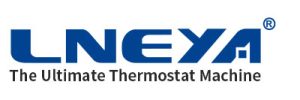 LNEYA
LNEYA
 简体中文
简体中文










